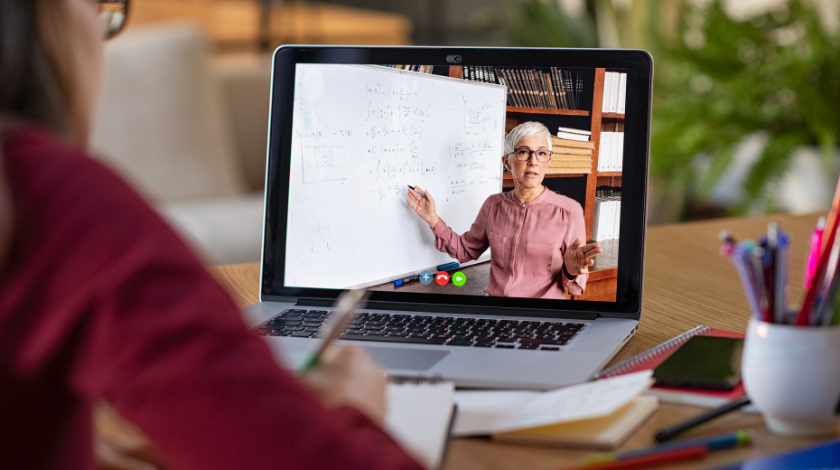On January 26th, Michelson 20MM Program Officer Ryan Erickson-Kulas led an informative webinar on Advancing Equity and Online Learning at Community Colleges with Open Educational Resources (OER) in partnership with the Institute for the Study of Knowledge Management (ISKME). Leaders in the OER and distance learning space provided insights on the benefits of OER and how the COVID-19 pandemic has accelerated the adoption of no-cost, openly licensed digital learning materials. Speakers included:
- Amee Evans Godwin – VP research and Development, ISKME
- Cynthia Jimes – Director of Research and Learning, ISKME
- Amanda Taintor – Faculty Coordinator Instructional Design and Distance Education, Interim Director of Title V, Reedley College
- James Glapa-Grossklag – Dean of Educational Technology, Learning Resources, and Distance Learning, College of the Canyons
As the pandemic forced lockdowns at college campuses across the nation last spring, Michelson 20MM launched a Spark Grant funding cycle to distribute grant awards in support of faculty, students, and schools transitioning to a remote learning environment. ISKME, an education nonprofit seeking to make education more open and equitable, was a Spark Grant recipient. The award financed the development of an Administrator Quick Start Guide and Faculty Quick Start Guide designed to make the integration of OER into distance education easier.
In California, the pandemic coupled with wildfires and unforeseen future crises has created the need for digital, open course materials at statewide community colleges. Schools that are having trouble keeping cash-strapped students enrolled and on track to graduate can benefit by including free, open textbooks that lower the cost of attendance. Not only are open materials easily accessible using computers or mobile devices, but instructors can also adapt the content to make it more engaging and relevant to their students. And while the OER movement began with a focus on student cost-saving, there’s now growing evidence that OER enhances both teaching and learning while also increasing institutional revenue through retained tuition.
During the webinar, Amanda Taintor and James Glapa-Grossklag conveyed how OER have impacted their institutions. At the start of the transition to online instruction, Amanda trained the faculty at Reedley College to prepare for remote teaching. By framing OER as alternative content she was able to rouse faculty interest in adopting openly licensed resources. Now, the school’s online certification includes a substantial OER element that demonstrates the benefits of OER to faculty members, students, and the institution’s bottom line.
James followed up by saying that while instructors at College of the Canyons already had reasonably good awareness of OER, the pandemic brought the digital divide that exists among students into sharp focus. For the first time, educators recognized that many students and even faculty members aren’t equipped with stable internet connections and robust hardware required for online learning. As a result, instructors are now more cognizant of the affordability issue and open to OER as alternatives to purchasing expensive traditional materials that drive up the cost of education.
Check out the entire thought-provoking webinar on how OER are having a positive impact on student success and college affordability. Also, Michelson 20MM is excited to announce that we’re launching a Spark Grant cycle centered on digital equity in early March, and an OER funding cycle this summer. Sign up for our newsletter to stay informed on the grant opportunities.
Michelson 20MM was founded thanks to the generous support of renowned spinal surgeon and inventor Dr. Gary K. Michelson and his wife, Alya Michelson. The Michelson 20MM Foundation is dedicated to supporting and investing in leading organizations, technologies, and initiatives that seek to transform learning and improve access to educational opportunities that lead to a meaningful career. Learn more at www.20mm.org.

